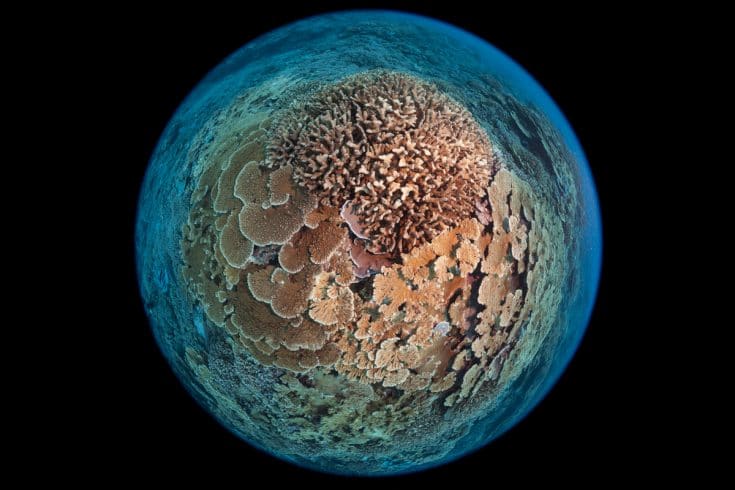
This Earth Day make a commitment to be a champion of our oceans.
Our oceans cover 71% of our Earth and contain over 99% of the living space on our planet—but they are in trouble. Facing increasing threats from climate change, overfishing, and pollution, we need to take action to protect our oceans before it is too late.
Here are five things you can do today to help save our oceans:
1. Make sustainable seafood choices
When you eat seafood, make sure the seafood you choose is sustainable. One of the biggest threats to ocean health (and to coral reefs in particular) is overfishing. Removing too many fish from a reef can cause irrevocable harm to the ecosystem, turning a vibrant and diverse coral reef into a barren wasteland covered in algae. Even farmed seafood can be a poor choice when mangrove forests are cleared for shrimp farms, or fish crammed into pens pollute the surrounding waters.
A handy rule of thumb is to never eat fish that are bigger or older than your grandmother. This not only ensures that slow-growing fish have had time to reproduce before they are caught but keeps you from eating harmful toxins that bioaccumulate in large fish at the top of the food chain. For more detailed recommendations on making sustainable seafood choices, refer to these handy seafood guides from Seafood Watch or shop for seafood certified by the Marine Stewardship Council.
2. Shrink your carbon footprint
Ocean ecosystems are under increasing pressure from the twin threats of climate change and ocean acidification. Excess carbon dioxide in our atmosphere is causing our oceans to become warmer and more acidic, resulting in mass global coral bleaching events and making it harder for corals and shelled organisms to grow and reproduce.
By making small changes to your lifestyle, such as taking fewer flights, eating less meat, lowering your thermostat, and driving less, you can make a big difference in the amount of carbon your family releases into the atmosphere. The average American home emits 5 tons of carbon dioxide a year. Use a carbon calculator to see how much carbon you emit, and see what you can do to lower your carbon footprint.
3. Avoid single-use plastic
Every year nearly 9 million tons of plastic enter the ocean. Most of this plastic waste comes from improper trash disposal, as plastic finds its way through rivers and streams down to the sea. It litters our ocean, forming large garbage patches in ocean gyres, and accumulates on beaches even in remote uninhabited islands. Plastic breaks down into small particles in the ocean where it is eaten by fish, turtles, seabirds, and whales. You can help to reduce the amount of plastic by recycling, properly disposing of your trash, and avoiding single-use plastics. Simple choices you make such as taking reusable bags with you to the grocery store, saying no to straws, and refilling your water bottle instead of buying one from the store are small steps you can take, that when made collectively by society, make a positive impact on our environment.
4. Watch your use of chemicals and fertilizers
Remember that all water flows to the sea, so pay attention to the chemicals you use at home and on your lawn. Fertilizer from lawns and farms makes
5. Be an Ocean Steward
When you visit the ocean, leave it a better place than you found it. Observe safe boating practices that don’t harm the reef or coastal habitats. Pick up trash you see on the beach and sign up to volunteer for the International Ocean Cleanup. Even if you don’t live near the coast, chances are there is a cleanup at a lake or a river near you.
Above all else, get involved in the marine conservation movement. The biggest threat to our oceans is not really climate change, overfishing, or pollution—it is the will to do anything about it. We know what to do to improve the health and resiliency of our oceans. What we need now is the will to do it.